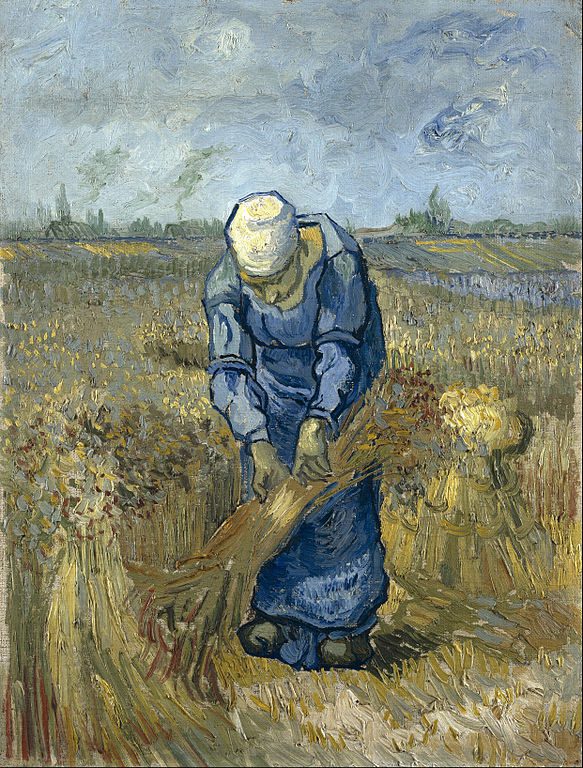
This is one of the latest charges from Novus Ordo Watch: a sedevacantist venue. In an article dated 6-14-19, entitled, More “Papal” Heresy: Francis the Lutheran denies Catholic Dogma on Merit, it claims:
[H]e revealed that he denies the Catholic dogma on the possibility of supernatural merit before God by the justified.
The heretical ramblings of the false pope, who goes by the stage name of Francis, were reported by the Vatican’s in-house propaganda arm, Vatican News:
Christian life, said Pope Francis, is lived gratuitously. “Without cost you have received; without cost you are to give,” he said, was how Jesus described the core of salvation.
He said salvation cannot be bought, because God “saves us free of charge” and “requires no payment”.
As God has done with us, so we are to do with others, he said.
“Realize that the Lord is full of gifts for us. He asks just one thing: that our hearts be open. When we say ‘Our Father’ and we pray, we open our heart, allowing this gratuitousness to enter. Often when we need some spiritual grace, we say: ‘Well, now I will fast, do penance, pray a novena…’ Fine, but be careful: this is not done to ‘pay’ or ‘buy’ grace. We do it to open our hearts so that grace might enter. Grace is freely given.”
All God’s gifts, said Pope Francis, are given without cost. And he warned that sometimes “the heart folds in on itself and remains closed”, and it is no longer able to receive “such freely given love”.
We should not bargain with God, he said.
…
“In our spiritual life we always run the risk of slipping up on the question of payment, even when speaking with the Lord, as if we needed to bribe the Lord. No! That is not the correct path… I make a promise, in order to expand my heart to receive what is already there, waiting for us free of charge. This relationship of gratuitousness with God is what will help us to have the same rapport with others, whether it be in Christian witness, Christian service, or the pastoral work of those who guide the people of God. We do so along the way. Christian life means walking. Preach and serve, but do not make use of others. Serve and give freely that which you have received freely. May our life of holiness be permeated by this openness of heart, so that the gratuitousness of God – the graces that He wishes to give us without cost – may enter our hearts.”
(Devin Watkins, “Pope at Mass: ‘Serve others freely, as God freely loves you’”, Vatican News, June 11, 2019; italics removed . . .)
What we see here is a clever attempt to instill heresy in the souls of the hearers by means of half-truths, which are the most dangerous kinds of lies. Like most heretics, Francis is not ashamed even to hijack a passage found in Sacred Scripture to serve as the foundation of his denial of dogma; in this case, Mt 10:8: “Heal the sick, raise the dead, cleanse the lepers, cast out devils: freely have you received, freely give.”
It is evident that Francis denies the possibility and value of the justified meriting graces and even Eternal Life itself. . . .
Yes, yes, perhaps a Jimmy Akin or Dave Armstrong can find ways to spin what Bergoglio said into something resembling orthodoxy. But the plain sense of the words is what it is, and that’s how people will understand them, and that’s exactly what Francis counts on; because had he wanted to preach clear orthodoxy, well, he could simply have done so.
Pope Francis was simply talking about the primacy and absolute necessity of grace, which precedes and brings about any merit that we obtain. As St. Augustine famously stated: “merit is God crowning His own gifts.” The article notes Catholic teaching on grace alone, but claims that Pope Francis would deny meritorious actions leading to an increase of grace and justification, after regeneration.
He doesn’t directly address those things in these excerpts, so we must look elsewhere:
Saint Bernard goes on to ask: But what can I count on? My own merits? No, “My merit is God’s mercy. I am by no means lacking merits as long as he is rich in mercy. If the mercies of the Lord are manifold, I too will abound in merits” [On the Song of Songs, 61:5]. (Homily on Divine Mercy Sunday, 7 April 2013, section 3)
We share in the merits and joy of the saints, even as they share in our struggles and our longing for peace and reconciliation. Their joy in the victory of the Risen Christ gives us strength as we strive to overcome our indifference and hardness of heart. (Message for Lent 2015: 4 October 2014)
And if I do merit something do I believe it is through Jesus Christ and what he has done for me? (Morning Meditation, 15 October 2015)
Blessed are those who remain faithful while enduring evils inflicted on them by others, and forgive them from their heart. Blessed are those who look into the eyes of the abandoned and marginalized, and show them their closeness. Blessed are those who see God in every person, and strive to make others also discover him. Blessed are those who protect and care for our common home. Blessed are those who renounce their own comfort in order to help others. Blessed are those who pray and work for full communion between Christians. All these are messengers of God’s mercy and tenderness, and surely they will receive from him their merited reward. (Homily in Sweden, 1 November 2016)
In recent weeks, I was particularly struck by a Collect of the Lenten Season (Wednesday of the Fourth Week), which somehow seems to summarize these reflections. I shall share it with you so that we can make it our prayer and way of life:
“O God, who reward the merits of the just
and offer pardon to sinners who do penance,
have mercy, we pray, on those who call upon you,
that the admission of our guilt may serve to obtain your pardon for our sins”.(Address to the Missionaries of Mercy, 10 April 2018)
The New Testament strikingly nearly equates our meritorious works and God’s grace, or His work (synergy): so closely are our works and His enabling grace tied, in a “both/and” outlook:
1 Corinthians 3:8-9 (RSV) He who plants and he who waters are equal, and each shall receive his wages according to his labor. For we are God’s fellow workers; you are God’s field, God’s building.
1 Corinthians 15:10 But by the grace of God I am what I am, and his grace toward me was not in vain. On the contrary, I worked harder than any of them, though it was not I, but the grace of God which is with me.
1 Corinthians 15:58 Therefore, my beloved brethren, be steadfast, immovable, always abounding in the work of the Lord, knowing that in the Lord your labor is not in vain.
Ephesians 2:10 For we are his workmanship, created in Christ Jesus for good works, which God prepared beforehand, that we should walk in them.
Philippians 2:12-13 Therefore, my beloved, as you have always obeyed, so now, not only as in my presence but much more in my absence, work out your own salvation with fear and trembling; for God is at work in you, both to will and to work for his good pleasure.
2 Peter 1:10 Therefore, brethren, be the more zealous to confirm your call and election, for if you do this you will never fall;
***
Photo credit: Peasant woman binding sheaves (after Millet) (1889), by Vincent van Gogh (1853-1890) [public domain / Wikimedia Commons]
***













